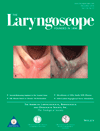 In 2012, John Carlisle, a British anesthesiologist, demonstrated conclusively using statistics that Yoshitaka Fujii had faked data in many studies. Fujii — as followers of this blog well know — now holds the record for most retractions by an individual author (183).
In 2012, John Carlisle, a British anesthesiologist, demonstrated conclusively using statistics that Yoshitaka Fujii had faked data in many studies. Fujii — as followers of this blog well know — now holds the record for most retractions by an individual author (183).
Carlisle’s work accomplished two things: It put to rest any doubt that problems with Fujii’s work might have resulted from innocent mistakes, and it gave journals a mathematical tool for conducting investigations into potential cases of misconduct.
Now comes the payoff. In a new paper, Carlisle and another anesthesiologist, John Loadsman, take aim at one of Fujii’s frequent co-authors, Yuhji Saitoh of Yachiyo Medical Center and Tokyo Women’s Medical University in Japan. The pair analyzed data from 31 studies Saitoh published between 1993 and 2012 — including one study that was rejected in 2015 — for a total of 32 papers. Of those, 23 did not include Fujii as an author.
Writing in the journal Anaesthesia, where Carlisle published his first study about Fujii, he and Loadsman state that: Continue reading Co-author of retraction record-holder likely fabricated his own data, analysis shows
 A journal has retracted a 2012 paper after the last author was unable to provide material to support the results presented in multiple figures.
A journal has retracted a 2012 paper after the last author was unable to provide material to support the results presented in multiple figures. A study
A study 



